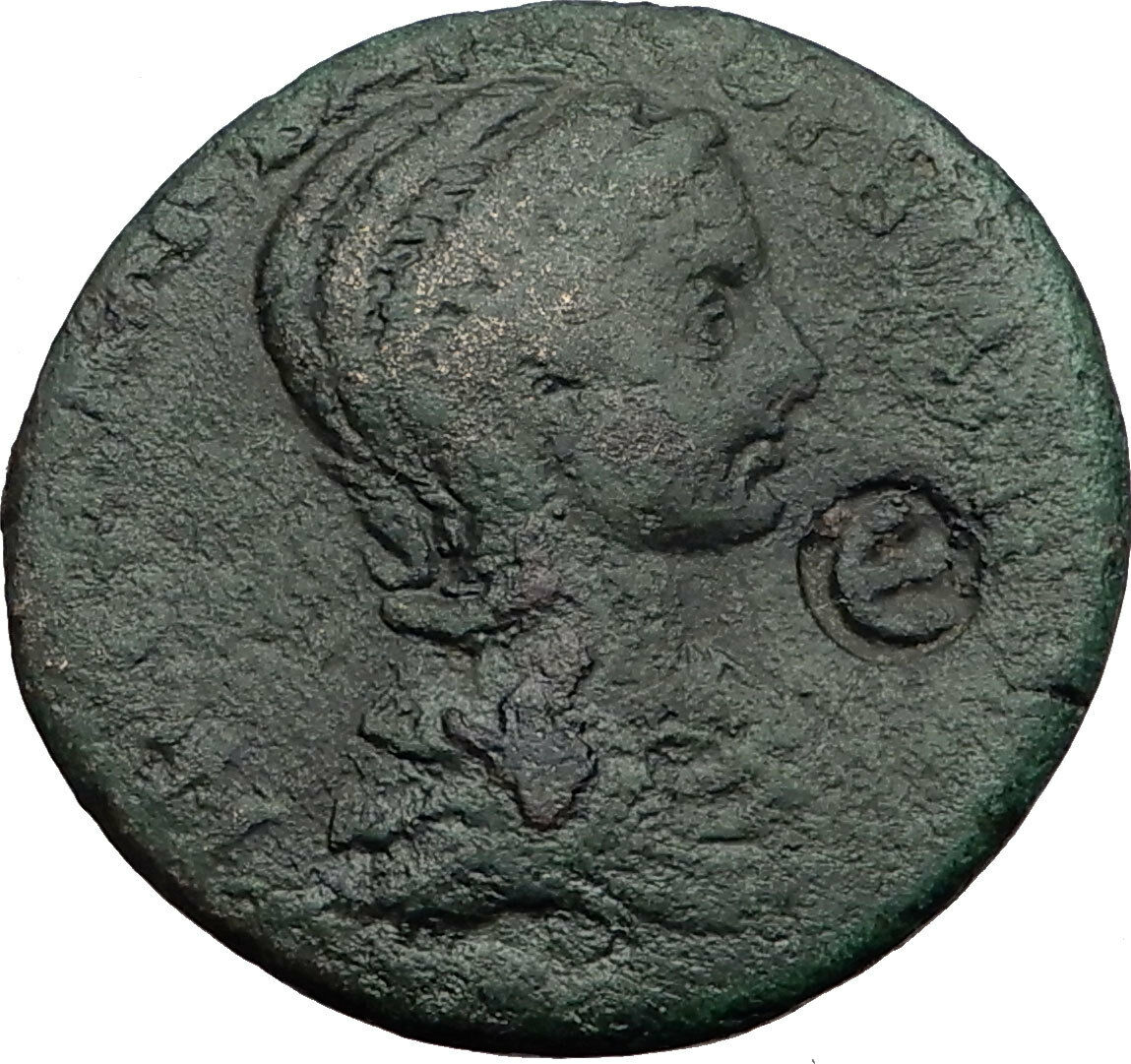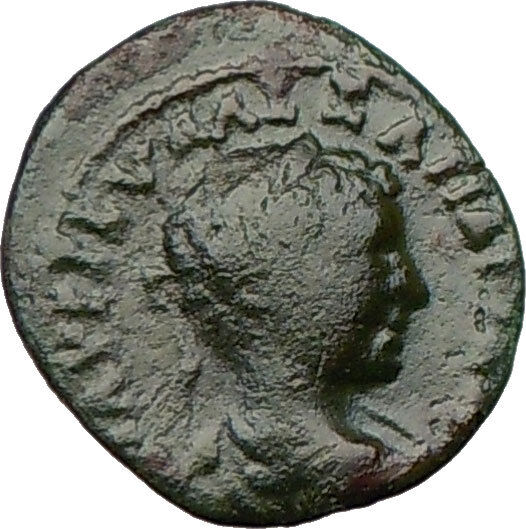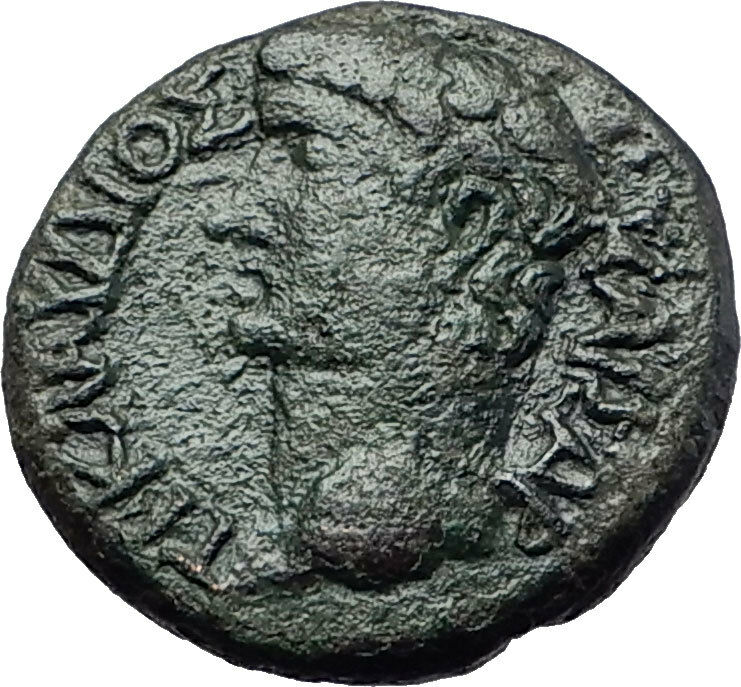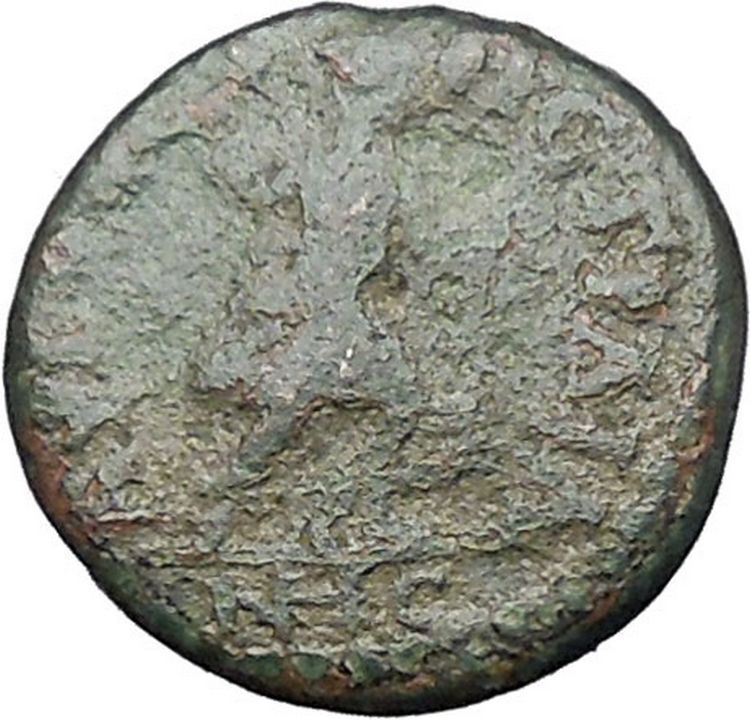|
Diadumenian – Roman Caesar: 218 A.D.
Bronze 24mm (9.76 grams) of Deultum in Thrace 218 A.D.
M OPEL ANTONINVS DIADV C, Bare-headed, draped and cuirassed bust right.
C F P D, Colonist/city founder plowing right with two oxen.
This type commemorates 150th year of the founding of the colony of Deultum. The first letter on the reverse C stands for Colonia, and the last for Deultum.
* Numismatic Note: Interesting to note that the city grid in ancient times was measured by a certain distance an ox could walk and that would be used as a standard when a city was founded. Similar foundation scenes have been observed on coins of Roman emperor Augustus from Philippi. I have been unable to find anything that resembles this reverse type anywhere online, making it possibly unpublished, but very rare at the least.
You are bidding on the exact item pictured, provided with a Certificate of Authenticity and Lifetime Guarantee of Authenticity.
Debelt is a village in Sredets municipality in Burgas Province in southeastern Bulgaria , about 25 kilometers from Burgas . It has a population of 1,574 and an altitude of 46 meters. The village was founded around the 2nd century by the Roman emperor Vespasian . Then called Deultum, it was the only Roman colony on Bulgarian land in the Flavian dynasty . During the Byzantine era it was known as Develtos (Greek: Δεβελτός).
A Roman colonia (plural coloniae) was originally a Roman outpost established in conquered territory to secure it. Eventually, however, the term came to denote the highest status of Roman city.
According to Livy , Rome’s first colonies were established in about 752 BC at Antemnae and Crustumerium .
Other early colonies were established at Ostia , Antium , and Tarracina in the late fourth century B.C . In this first period of colonization, which lasted down to the end of the Punic Wars , colonies were primarily military in purpose, being intended to defend Roman territory. There were colonies of citizens and colonies of Latins, which differed in size, constitution, and region. Colonies of citizens were typically coastal and known as coloniae maritimae. These were small (three hundred families), close to Rome, and enjoyed no civic life of their own. Sherwin-White suggested that they were similar to the Athenian cleruchy .
Coloniae also included towns founded by Rome to house those who held Roman citizenship. In Britain this usually meant those who had completed their military service in the Legions and were thus owed a grant of land by the state; see Marian Reforms .
Marcus Opellius Antoninus Diadumenianus or Diadumenian (208–218) was the son of the Roman Emperor Macrinus, and served his father briefly as Caesar (May 217–218) and as Augustus (in 218). Diadumenian was born in 14th of September 208 a.C or according to Historia Augusta in 19th of September 208 a.C because he shared the same birthday with the emperor Antoninus Pius. His mother was Empress Nonia Celsa, although her existence remains dubious, because she was only mentioned by the Historia Augusta. He was born Marcus Opellius Diadumenianus, but his name was changed and added Antoninus to solidify connection to the family of Marcus Aurelius as done by Caracalla.
Diadumenian had little time to enjoy his position or to learn anything from its opportunities because the legions of Syria revolted and declared Elagabalus ruler of the Roman Empire. When Macrinus was defeated on June 8, 218, at Antioch, Diadumenian followed his father’s death.
|







